Battle of Hong Kong: A veteran remembers
Updated: 2015-07-24 23:52
By Na Li(China Daily Canada)
|
||||||||
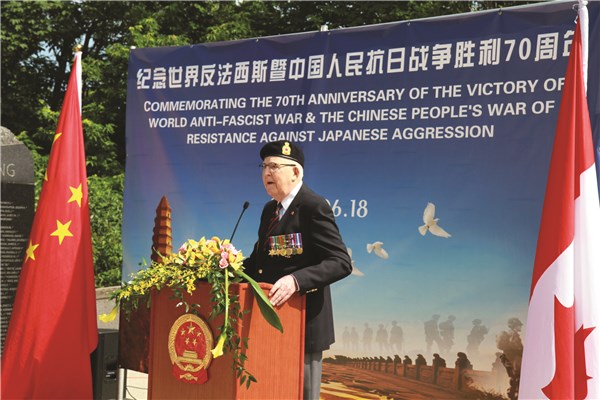 |
|
George S. MacDonell speaks at a ceremony hosted by the Chinese embassy in Ottawa on June 18. It marked the 70th anniversary of the victory in the anti-Fascist war and the Chinese People's War of Resistance against the Japanese Aggression. Photo provided to China Daily. |
George S. MacDonell survived the Battle of Hong Kong against the Japanese army in 1941. One of Canada’s few living World War II veterans, MacDonell recalls the battle, Japanese prison camps and the courage of his Canadian comrades, Rena Li reports from Toronto.
In November 1941, 2,000 young Canadian soldiers crossed the Pacific Ocean and landed in the British crown colony of Hong Kong to fight Japanese aggressors. More than 500 of them never returned home. One who did was George S. MacDonell.
He had just turned 18 when he quit high school and answered the call from the Canadian government for volunteers to fight in World War II.
“We suddenly found ourselves in a culture which had been writing sophisticated poetry before Canada was discovered,” the now 93-year-old MacDonell said about Hong Kong during a recent interview with China Daily at his residence in Toronto. “Our time on the island was a wonderful experience at one of the crossroads of the world.”
That “wonderful experience” would end the next month.
On December 8, the same morning that the Japanese attacked the US naval base at Pearl Harbor, 80,000 Japanese soldiers backed by airplanes and a naval force attacked Hong Kong.
“We didn’t know that the Japanese were going to try invading the entire area of Asia. We didn’t believe that the Japanese were so foolish as to take on China, Great Britain, the United States, Australia and Canada,” said MacDonell.
About a week into the battle, the Hong Kong defenders composed of the Canadians, local troops, British and Indian units, received a message from British Prime Minister Winston Churchill:
“Do everything you can to buy time, but never surrender. Do not give up the island. Fight with the Chinese as long as you can, and harm the Japanese army as much as you can.”
But the Japanese military force was too great. On Christmas Day after 17 days of fighting, the Canadians were defeated, and the British governor of Hong Kong ordered them to surrender.
“We never put our hands in the air to the Japanese, and never laid down arms until ordered to do so,” said MacDonell. “The Royal Rifles never quit during the battle in Hong Kong or in those ghastly prison camps in the following years.”
The fighting in Hong Kong ended with immense Canadian casualties: 290 killed and 493 wounded.
McDonell and his Canadian comrades would spend almost four years in Japanese prison camps in Hong Kong and Japan.
The POWs were sent to a camp called Sham Shui Po on the island. The worse the prison conditions got, the more determined the men of the Royal Rifles became to not crack, said MacDonnell.
During their time at that camp, members of a Chinese anti-Japanese guerrilla force planned to attack the Japanese and rescue all the prisoners and take them into China.
“But disaster struck. The Japanese discovered the plot and these young officers were tortured and executed,” MacDonell said.
After a year or so of captivity in Hong Kong, the Canadian prisoners were sent to a camp at Kawasaki, a suburb of Yokohama, Japan. They worked as slave labor in Japan’s largest shipyard, which built freighters and naval vessels.
Despite having to endure terrible conditions, the prisoners found ways to sabotage the Japanese shipbuilding effort.
Two of them were young Canadians from Toronto, Staff Sergeant Charlie Clark and Private Stanley Cameron, who worked at a Nippon Kokan shipyard, Japan’s largest shipyard.
They started a fire under the yard’s blueprint factory where wooden forms were patterned. It was timed to occur at night when the prisoners were back at their camp, about two miles away.
“Burning the blueprints and patterns that came from them meant there was no way you could build a ship or do anything in that shipyard,’’ MacDonell said. “They did it in utter secrecy; they told no one. But they pulled it off and even saved their own lives by doing so undetected. This tells the spirit of the Canadians who even after they were after prisoners, decided to never give up, never accept the Japanese and to keep fighting.”
Long after, when MacDonell met Clark and congratulated him for his actions, he said Clark smiled and said, “It went rather well, didn’t it?”
The Canadian POWS were moved to a camp in northern Japan until freed in 1945 when Japan surrendered. But before being freed, the prisoners feared they would be killed by their captives.
One Japanese order said, “Do not allow the escape of a single one – annihilate them all and have no trace.”
On September 15, 1945, American forces picked up the Canadians at a nearby port.
Looking back at the Battle of Hong Kong, MacDonell said:
“Too little has been said about the Chinese volunteers who fought with us. And who went to prison camps with us. They were extremely brave, and we were very proud that we were associated with them. And they suffered very heavy casualties too.”
He said the Battle of Hong Kong “is not about how the Canadians were defeated. It’s about how they fought and how they behaved against impossible odds. And it’s about the mettle they showed when it was apparent that there was no hope and there was no possibility of a successful outcome. They never surrendered and they fought like tigers.”
After the war, MacDonell went back to finish high school, and got his BA at the University of Toronto. He married Margaret Telford, a young professor at the school, while he studied there for his MA. They had a son and a daughter, and she died two years ago.
When he was studying for his MA, MacDonnell wrote a term paper about the labor relations of Canadian General Electric (CGE). It caught the attention of H.M. Turner, then the president of the company, which led to MacDonell being hired in 1950 and spending 20 years in its management ranks, during which he became vice-president.
He retired from CGE in 1970 and then worked for other companies before being appointed Ontario’s deputy minister of Industry, Trade and Technology in 1984.
In the early ’80s, MacDonell believed then that China would be a great export market for Ontario because it had the largest population in the world and emerging demands for a more modern lifestyle.
In 1984, he proposed that Ontario and China’s Jiangsu province, where the Nanking Massacre happened during Japan’s invasion, establish a joint venture, the Jiangsu-Ontario Technology Centre, which was built in 1987.
“We brought the premier of Jiangsu to Toronto and she invited our premier… and we had a wonderful relationship,” he said. “So I’ve been involved with the Chinese people as a soldier, and as a diplomat, for a long time, for about 80 years.”
Since retiring from business and government, MacDonell has published four books: One Soldier’s Story, A Dog Named Gander, They Never Surrendered, and The Life and Times of George S. MacDonell. And his ties with China have not ended.
In December 2005, MacDonell took 150 high school students from Canada to Hong Kong to celebrate the 60th anniversary of the day that the prisoners were released from Japan’s camps, and to say one last “goodbye” to his Canadian comrades who lost their lives during the Battle of Hong Kong and are buried in Sai Wan Military Cemetery on the island.
On June 18, the Chinese embassy in Canada hosted a ceremony in Ottawa marking the 70th anniversary of the victory of the anti-Fascist war and the Chinese People’s War of Resistance against Japanese aggression.
The ceremony was held in front of the Defence of Hong Kong Memorial Wall. MacDonell was invited to represent Canadian veterans of the Battle of Hong Kong.
MacDonald dedicated his remarks to the Chinese volunteers who fought alongside the Canadians in what he described as a courageous attempt to thwart the Japanese invaders against overwhelming odds.
Luo Zhaohui, China’s ambassador to Canada, presented MacDonell with a certificate of appreciation for his bravery.
“For the young Canadian fighters, they fought not for conquest. They fought to end conquest. They fought for peace, for lasting peace, “Luo said at the ceremony. “Some survived while others never returned. They slept forever in the remote lands. We will never forget them. We will remember them forever.”
Contact the writer at renali@chinadailyusa.com
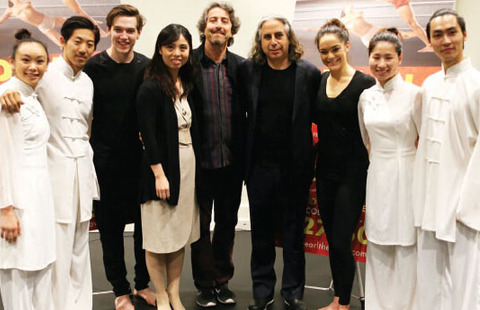
 Across America over the week (July 17- July 23)
Across America over the week (July 17- July 23)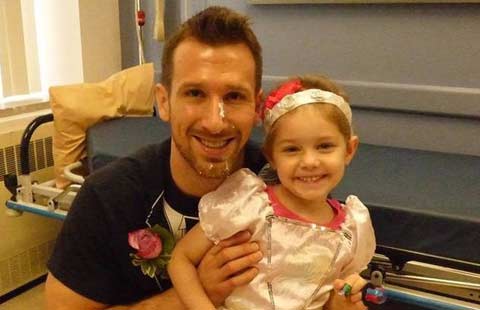
 Unusual but true: 'Love' conquers all
Unusual but true: 'Love' conquers all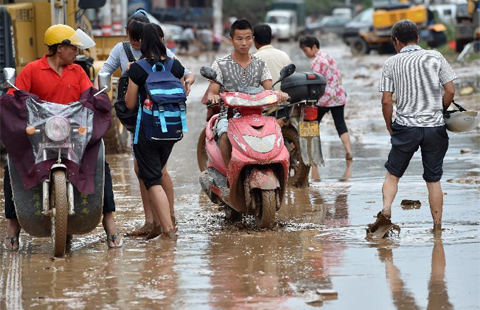
 Six dead as rainstorms wreak havoc in China
Six dead as rainstorms wreak havoc in China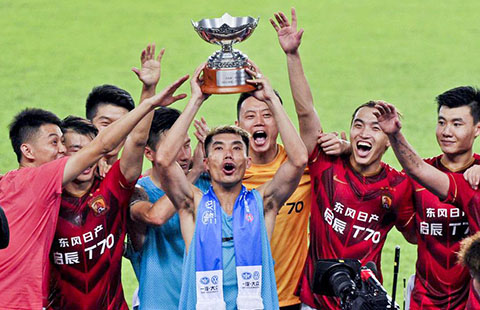
 Guangzhou Evergrande stun Bayern in penalty shootout
Guangzhou Evergrande stun Bayern in penalty shootout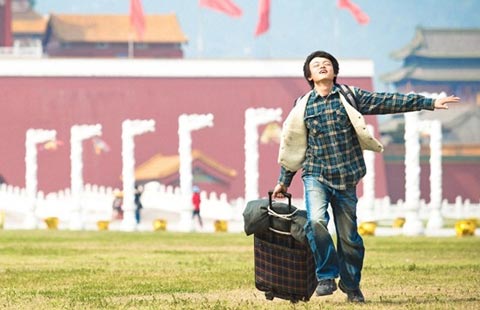
 10 domestic films to see this summer
10 domestic films to see this summer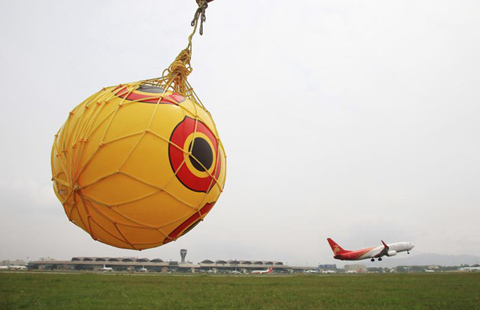
 Tricks airports use to scare away birds
Tricks airports use to scare away birds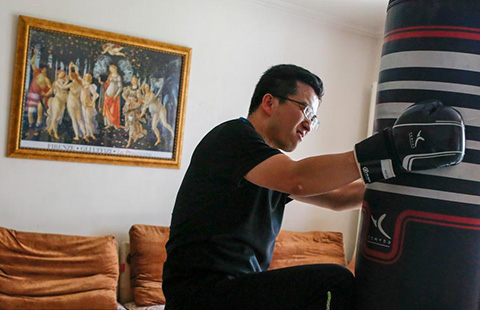
 The highs and lows of a stock market investor
The highs and lows of a stock market investor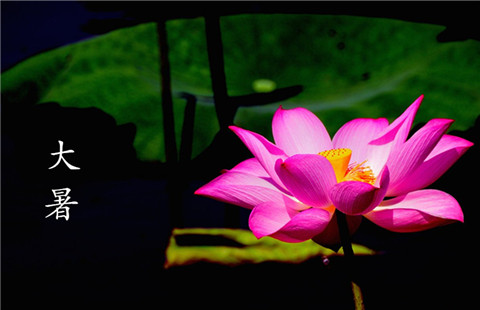
 Culture insider: 7 things you may not know about Major Heat
Culture insider: 7 things you may not know about Major Heat
Most Viewed
Editor's Picks

|

|

|

|

|

|
Today's Top News
Astronomers discover most Earth-like planet yet
Seattle Chinatown leader killed in shooting
Flight details of Obama's Kenya trip leaked
2 killed, several injured in Louisiana theater shooting
Deficit hits $104b in first half
Obama to meet extended family members in Kenya
More Chinese companies become world top 500
Earth-like planet discovered using NASA's Kepler space telescope
US Weekly

|

|






